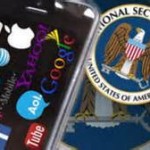Twelve years later and counting, lets examine any advances in destroying Usama bin Ladin’s mission.

In the Name of Allah, the Most Gracious, the Most Merciful,
“Permission to fight (against disbelievers) is given to those (believers) who are fought against, because they have been wronged and surely, Allah is Able to give them (believers) victory” [Quran 22:39]
“Those who believe, fight in the Cause of Allah, and those who disbelieve, fight in the cause of Taghut (anything worshipped other than Allah e.g. Satan). So fight you against the friends of Satan; ever feeble is indeed the plot of Satan.”[Quran 4:76]
Some American writers have published articles under the title ‘On what basis are we fighting?’ These articles have generated a number of responses, some of which adhered to the truth and were based on Islamic Law, and others which have not. Here we wanted to outline the truth – as an explanation and warning – hoping for Allah’s reward, seeking success and support from Him.
While seeking Allah’s help, we form our reply based on two questions directed at the Americans:
(Q1) Why are we fighting and opposing you? Q2)What are we calling you to, and what do we want from you?
As for the first question: Why are we fighting and opposing you? The answer is very simple:
(1) Because you attacked us and continue to attack us.
a) You attacked us in Palestine:
(i) Palestine, which has sunk under military occupation for more than 80 years. The British handed over Palestine, with your help and your support, to the Jews, who have occupied it for more than 50 years; years overflowing with oppression, tyranny, crimes, killing, expulsion, destruction and devastation. The creation and continuation of Israel is one of the greatest crimes, and you are the leaders of its criminals. And of course there is no need to explain and prove the degree of American support for Israel. The creation of Israel is a crime which must be erased. Each and every person whose hands have become polluted in the contribution towards this crime must pay its*price, and pay for it heavily.
(ii) It brings us both laughter and tears to see that you have not yet tired of repeating your fabricated lies that the Jews have a historical right to Palestine, as it was promised to them in the Torah. Anyone who disputes with them on this alleged fact is accused of anti-semitism. This is one of the most fallacious, widely-circulated fabrications in history. The people of Palestine are pure Arabs and original Semites. It is the Muslims who are the inheritors of Moses (peace be upon him) and the inheritors of the real Torah that has not been changed. Muslims believe in all of the Prophets, including Abraham, Moses, Jesus and Muhammad, peace and blessings of Allah be upon them all. If the followers of Moses have been promised a right to Palestine in the Torah, then the Muslims are the most worthy nation of this.
When the Muslims conquered Palestine and drove out the Romans, Palestine and Jerusalem returned to Islaam, the religion of all the Prophets peace be upon them. Therefore, the call to a historical right to Palestine cannot be raised against the Islamic Ummah that believes in all the Prophets of Allah (peace and blessings be upon them) – and we make no distinction between them.
(iii) The blood pouring out of Palestine must be equally revenged. You must know that the Palestinians do not cry alone; their women are not widowed alone; their sons are not orphaned alone.
(b) You attacked us in Somalia; you supported the Russian atrocities against us in Chechnya, the Indian oppression against us in Kashmir, and the Jewish aggression against us in Lebanon.
(c) Under your supervision, consent and orders, the governments of our countries which act as your agents, attack us on a daily basis;
(i) These governments prevent our people from establishing the Islamic Shariah, using violence and lies to do so.
(ii) These governments give us a taste of humiliation, and places us in a large prison of fear and subdual.
(iii) These governments steal our Ummah’s wealth and sell them to you at a paltry price.
(iv) These governments have surrendered to the Jews, and handed them most of Palestine, acknowledging the existence of their state over the dismembered limbs of their own people.
(v) The removal of these governments is an obligation upon us, and a necessary step to free the Ummah, to make the Shariah the supreme law and to regain Palestine. And our fight against these governments is not separate from out fight against you.
(d) You steal our wealth and oil at paltry prices because of you international influence and military threats. This theft is indeed the biggest theft ever witnessed by mankind in the history of the world.
(e) Your forces occupy our countries; you spread your military bases throughout them; you corrupt our lands, and you besiege our sanctities, to protect the security of the Jews and to ensure the continuity of your pillage of our treasures.
(f) You have starved the Muslims of Iraq, where children die every day. It is a wonder that more than 1.5 million Iraqi children have died as a result of your sanctions, and you did not show concern. Yet when 3000 of your people died, the entire world rises and has not yet sat down.
(g) You have supported the Jews in their idea that Jerusalem is their eternal capital, and agreed to move your embassy there. With your help and under your protection, the Israelis are planning to destroy the Al-Aqsa mosque. Under the protection of your weapons, Sharon entered the Al-Aqsa mosque, to pollute it as a preparation to capture and destroy it.
(2) These tragedies and calamities are only a few examples of your oppression and aggression against us. It is commanded by our religion and intellect that the oppressed have a right to return the aggression. Do not await anything from us but Jihad, resistance and revenge. Is it in any way rational to expect that after America has attacked us for more than half a century, that we will then leave her to live in security and peace?!!
(3) You may then dispute that all the above does not justify aggression against civilians, for crimes they did not commit and offenses in which they did not partake:
(a) This argument contradicts your continuous repetition that America is the land of freedom, and its leaders in this world. Therefore, the American people are the ones who choose their government by way of their own free will; a choice which stems from their agreement to its policies. Thus the American people have chosen, consented to, and affirmed their support for the Israeli oppression of the Palestinians, the occupation and usurpation of their land, and its continuous killing, torture, punishment and expulsion of the Palestinians. The American people have the ability and choice to refuse the policies of their Government and even to change it if they want.
(b) The American people are the ones who pay the taxes which fund the planes that bomb us in Afghanistan, the tanks that strike and destroy our homes in Palestine, the armies which occupy our lands in the Arabian Gulf, and the fleets which ensure the blockade of Iraq. These tax dollars are given to Israel for it to continue to attack us and penetrate our lands. So the American people are the ones who fund the attacks against us, and they are the ones who oversee the expenditure of these monies in the way they wish, through their elected candidates.
(c) Also the American army is part of the American people. It is this very same people who are shamelessly helping the Jews fight against us.
(d) The American people are the ones who employ both their men and their women in the American Forces which attack us.
(e) This is why the American people cannot be not innocent of all the crimes committed by the Americans and Jews against us.
(f) Allah, the Almighty, legislated the permission and the option to take revenge. Thus, if we are attacked, then we have the right to attack back. Whoever has destroyed our villages and towns, then we have the right to destroy their villages and towns. Whoever has stolen our wealth, then we have the right to destroy their economy. And whoever has killed our civilians, then we have the right to kill theirs.
The American Government and press still refuses to answer the question:
Why did they attack us in New York and Washington?
If Sharon is a man of peace in the eyes of Bush, then we are also men of peace!!! America does not understand the language of manners and principles, so we are addressing it using the language it understands.
(Q2) As for the second question that we want to answer: What are we calling you to, and what do we want from you?
(1) The first thing that we are calling you to is Islam.
(a) The religion of the Unification of God; of freedom from associating partners with Him, and rejection of this; of complete love of Him, the Exalted; of complete submission to His Laws; and of the discarding of all the opinions, orders, theories and religions which contradict with the religion He sent down to His Prophet Muhammad (peace be upon him). Islam is the religion of all the prophets, and makes no distinction between them – peace be upon them all.
It is to this religion that we call you; the seal of all the previous religions. It is the religion of Unification of God, sincerity, the best of manners, righteousness, mercy, honour, purity, and piety. It is the religion of showing kindness to others, establishing justice between them, granting them their rights, and defending the oppressed and the persecuted. It is the religion of enjoining the good and forbidding the evil with the hand, tongue and heart. It is the religion of Jihad in the way of Allah so that Allah’s Word and religion reign Supreme. And it is the religion of unity and agreement on the obedience to Allah, and total equality between all people, without regarding their colour, sex, or language.
(b) It is the religion whose book – the Quran – will remained preserved and unchanged, after the other Divine books and messages have been changed. The Quran is the miracle until the Day of Judgment. Allah has challenged anyone to bring a book like the Quran or even ten verses like it.
(2) The second thing we call you to, is to stop your oppression, lies, immorality and debauchery that has spread among you.
(a) We call you to be a people of manners, principles, honour, and purity; to reject the immoral acts of fornication, homosexuality, intoxicants, gambling’s, and trading with interest.
We call you to all of this that you may be freed from that which you have become caught up in; that you may be freed from the deceptive lies that you are a great nation, that your leaders spread amongst you to conceal from you the despicable state to which you have reached.
(b) It is saddening to tell you that you are the worst civilization witnessed by the history of mankind:
(i) You are the nation who, rather than ruling by the Shariah of Allah in its Constitution and Laws, choose to invent your own laws as you will and desire. You separate religion from your policies, contradicting the pure nature which affirms Absolute Authority to the Lord and your Creator. You flee from the embarrassing question posed to you: How is it possible for Allah the Almighty to create His creation, grant them power over all the creatures and land, grant them all the amenities of life, and then deny them that which they are most in need of: knowledge of the laws which govern their lives?
(ii) You are the nation that permits Usury, which has been forbidden by all the religions. Yet you build your economy and investments on Usury. As a result of this, in all its different forms and guises, the Jews have taken control of your economy, through which they have then taken control of your media, and now control all aspects of your life making you their servants and achieving their aims at your expense; precisely what Benjamin Franklin warned you against.
(iii) You are a nation that permits the production, trading and usage of intoxicants. You also permit drugs, and only forbid the trade of them, even though your nation is the largest consumer of them.
(iv) You are a nation that permits acts of immorality, and you consider them to be pillars of personal freedom. You have continued to sink down this abyss from level to level until incest has spread amongst you, in the face of which neither your sense of honour nor your laws object.
Who can forget your President Clinton’s immoral acts committed in the official Oval office? After that you did not even bring him to account, other than that he ‘made a mistake’, after which everything passed with no punishment. Is there a worse kind of event for which your name will go down in history and remembered by nations?
(v) You are a nation that permits gambling in its all forms. The companies practice this as well, resulting in the investments becoming active and the criminals becoming rich.
(vi) You are a nation that exploits women like consumer products or advertising tools calling upon customers to purchase them. You use women to serve passengers, visitors, and strangers to increase your profit margins. You then rant that you support the liberation of women.
(vii) You are a nation that practices the trade of sex in all its forms, directly and indirectly. Giant corporations and establishments are established on this, under the name of art, entertainment, tourism and freedom, and other deceptive names you attribute to it.
(viii) And because of all this, you have been described in history as a nation that spreads diseases that were unknown to man in the past. Go ahead and boast to the nations of man, that you brought them AIDS as a Satanic American Invention.
(xi) You have destroyed nature with your industrial waste and gases more than any other nation in history. Despite this, you refuse to sign the Kyoto agreement so that you can secure the profit of your greedy companies and*industries.
(x) Your law is the law of the rich and wealthy people, who hold sway in their political parties, and fund their election campaigns with their gifts. Behind them stand the Jews, who control your policies, media and economy.
(xi) That which you are singled out for in the history of mankind, is that you have used your force to destroy mankind more than any other nation in history; not to defend principles and values, but to hasten to secure your interests and profits. You who dropped a nuclear bomb on Japan, even though Japan was ready to negotiate an end to the war. How many acts of oppression, tyranny and injustice have you carried out, O callers to freedom?
(xii) Let us not forget one of your major characteristics: your duality in both manners and values; your hypocrisy in manners and principles. All*manners, principles and values have two scales: one for you and one for the others.
(a)The freedom and democracy that you call to is for yourselves and for white race only; as for the rest of the world, you impose upon them your monstrous, destructive policies and Governments, which you call the ‘American friends’. Yet you prevent them from establishing democracies. When the Islamic party in Algeria wanted to practice democracy and they won the election, you unleashed your agents in the Algerian army onto them, and to attack them with tanks and guns, to imprison them and torture them – a new lesson from the ‘American book of democracy’!!!
(b)Your policy on prohibiting and forcibly removing weapons of mass destruction to ensure world peace: it only applies to those countries which you do not permit to possess such weapons. As for the countries you consent to, such as Israel, then they are allowed to keep and use such weapons to defend their security. Anyone else who you suspect might be manufacturing or keeping these kinds of weapons, you call them criminals and you take military action against them.
(c)You are the last ones to respect the resolutions and policies of International Law, yet you claim to want to selectively punish anyone else who does the same. Israel has for more than 50 years been pushing UN resolutions and rules against the wall with the full support of America.
(d)As for the war criminals which you censure and form criminal courts for – you shamelessly ask that your own are granted immunity!! However, history will not forget the war crimes that you committed against the Muslims and the rest of the world; those you have killed in Japan, Afghanistan, Somalia, Lebanon and Iraq will remain a shame that you will never be able to escape. It will suffice to remind you of your latest war crimes in Afghanistan, in which densely populated innocent civilian villages were destroyed, bombs were dropped on mosques causing the roof of the mosque to come crashing down on the heads of the Muslims praying inside. You are the ones who broke the agreement with the Mujahideen when they left Qunduz, bombing them in Jangi fort, and killing more than 1,000 of your prisoners through suffocation and thirst. Allah alone knows how many people have died by torture at the hands of you and your agents. Your planes remain in the Afghan skies, looking for anyone remotely suspicious.
(e)You have claimed to be the vanguards of Human Rights, and your Ministry of Foreign affairs issues annual reports containing statistics of those countries that violate any Human Rights. However, all these things vanished when the Mujahideen hit you, and you then implemented the methods of the same documented governments that you used to curse. In America, you captured thousands the Muslims and Arabs, took them into custody with neither reason, court trial, nor even disclosing their names. You issued newer, harsher laws.
What happens in Guatanamo is a historical embarrassment to America and its values, and it screams into your faces – you hypocrites, “What is the value of your signature on any agreement or treaty?”
(3) What we call you to thirdly is to take an honest stance with yourselves – and I doubt you will do so – to discover that you are a nation without principles or manners, and that the values and principles to you are something which you merely demand from others, not that which you yourself must adhere to.
(4) We also advise you to stop supporting Israel, and to end your support of the Indians in Kashmir, the Russians against the Chechens and to also cease supporting the Manila Government against the Muslims in Southern Philippines.
(5) We also advise you to pack your luggage and get out of our lands. We desire for your goodness, guidance, and righteousness, so do not force us to send you back as cargo in coffins.
(6) Sixthly, we call upon you to end your support of the corrupt leaders in our countries. Do not interfere in our politics and method of education. Leave us alone, or else expect us in New York and Washington.
(7) We also call you to deal with us and interact with us on the basis of mutual interests and benefits, rather than the policies of sub dual, theft and occupation, and not to continue your policy of supporting the Jews because this will result in more disasters for you.
If you fail to respond to all these conditions, then prepare for fight with the Islamic Nation. The Nation of Monotheism, that puts complete trust on Allah and fears none other than Him. The Nation which is addressed by its Quran with the words: “Do you fear them? Allah has more right that you should fear Him if you are believers. Fight against them so that Allah will punish them by your hands and disgrace them and give you victory over them and heal the breasts of believing people. And remove the anger of their (believers’) hearts. Allah accepts the repentance of whom He wills. Allah is All-Knowing, All-Wise.” [Quran9:13-1]
The Nation of honour and respect:
“But honour, power and glory belong to Allah, and to His Messenger (Muhammad- peace be upon him) and to the believers.” [Quran 63:8]
“So do not become weak (against your enemy), nor be sad, and you will be*superior ( in victory )if you are indeed (true) believers” [Quran 3:139]
The Nation of Martyrdom; the Nation that desires death more than you desire life:
“Think not of those who are killed in the way of Allah as dead. Nay, they are alive with their Lord, and they are being provided for. They rejoice in what Allah has bestowed upon them from His bounty and rejoice for the sake of those who have not yet joined them, but are left behind (not yet martyred) that on them no fear shall come, nor shall they grieve. They rejoice in a grace and a bounty from Allah, and that Allah will not waste the reward of the believers.” [Quran 3:169-171]
The Nation of victory and success that Allah has promised:
“It is He Who has sent His Messenger (Muhammad peace be upon him) with guidance and the religion of truth (Islam), to make it victorious over all other religions even though the Polytheists hate it.” [Quran 61:9]
“Allah has decreed that ‘Verily it is I and My Messengers who shall be victorious.’ Verily Allah is All-Powerful, All-Mighty.” [Quran 58:21]
The Islamic Nation that was able to dismiss and destroy the previous evil Empires like yourself; the Nation that rejects your attacks, wishes to remove your evils, and is prepared to fight you. You are well aware that the Islamic Nation, from the very core of its soul, despises your haughtiness and arrogance.
If the Americans refuse to listen to our advice and the goodness, guidance and righteousness that we call them to, then be aware that you will lose this Crusade Bush began, just like the other previous Crusades in which you were humiliated by the hands of the Mujahideen, fleeing to your home in great silence and disgrace. If the Americans do not respond, then their fate will be that of the Soviets who fled from Afghanistan to deal with their military defeat, political breakup, ideological downfall, and economic bankruptcy.
This is our message to the Americans, as an answer to theirs. Do they now know why we fight them and over which form of ignorance, by the permission of Allah, we shall be victorious?
Translated and published, November, 2002
The Intelligence Community has only released and published 17 documents found at bin Ladin’s compound in Abbotabad, Pakistan. No others to date have been released. The summary of the documents released can be read here.










